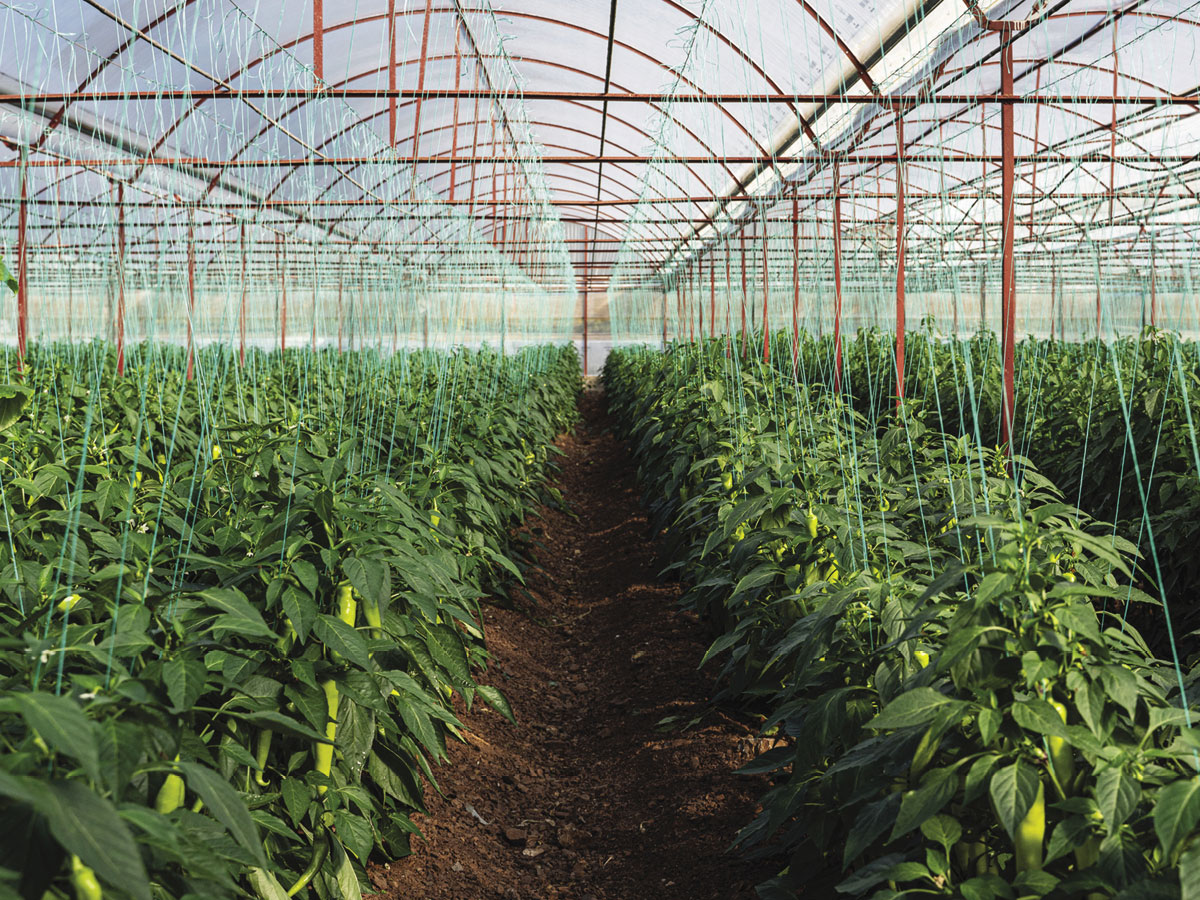An interview with T. Colin Campbell who has been dedicated to the science of human health for over 60 years. His primary focus is on the association between diet and disease.
After consuming meat, milk and eggs while growing up on a dairy farm in Virginia, T. Colin Campbell believed that more protein in a diet was better for health.
But mounting evidence soon challenged those long-held beliefs. Campbell himself began eating a primarily whole-food plant-based diet some 30 years ago.
He is well known for The China Study, which he co-authored in 2005. Since then, he has authored three more works, including New York Times bestseller Whole: Rethinking the Science of Nutrition in 2013 and The Future of Nutrition: An Insider’s Look at the Science, Why We Keep Getting It Wrong, and How to Start Getting It Right in 2020.
Today, the 87-year-old continues to advocate for a wider adoption of whole-food plant-based diets. He and his research have been featured in many documentaries including Forks Over Knives, Eating You Alive and Food Matters. He is the founder of the T. Colin Campbell Center for Nutritional Studies.
T. Colin Campbell joined us for a conversation about The China Study, food as medicine, disease prevention and what exactly is the future of food.
IMPACT Magazine: You grew up on a dairy farm. How did you end up advocating for plant-based whole-food diets?
T. Colin Campbell: After consuming meat, milk and eggs during my youth, milking cows on the farm, and after writing my doctoral dissertation at Cornell University justifying the consumption of more protein for good health, I was subsequently surprised to see evidence that questioned my beliefs. It came from a project on malnourished children in The Philippines that I was coordinating. Children consuming the most protein seemed to have a higher risk of liver cancer, similar to findings from a lab animal study in India. Critical research was needed as to what is true.
With research funding from the U.S. National Institutes of Health (NIH), repeatedly renewed for 27 years, laboratory animal studies (rats, mice) showed that increased animal protein consumption dramatically increased the growth of liver cancer whereas plant protein did not. Cancer growth was alternately turned on by animal protein, off by decreased animal protein, in the same animals. Additional studies sought the principal mechanism for this effect. It was found that not one but many mechanisms worked together, as in symphony, to produce this effect.
IM: Why distinguish between plant-based and whole-food plant-based?
TC: Plant-based, created by me in the late 1970s to emphasize its scientific basis instead of animal welfare as the descriptor for this dietary lifestyle, is not sufficiently discriminating. Diets composed of plant content merely over one-half of the total diet may be acceptable.
The addition of “whole” refers to the fact that nutrients in food may have very different nutritional properties than when consumed in isolation, as in supplements. The passing of time and the advice of colleagues suggests that a better descriptor would be a whole plant food diet.
I also suggest that we consider this diet as a ‘goal’ rather than being an absolute recommendation.
IM: Why was The China Study ground-breaking?
TC: It provided a large number of disease mortality rates and diet and lifestyle factors that allowed us to study diet-disease associations more comprehensively than is possible in western populations. Ranges of diet experience and disease mortality were considerably beyond the scope of ranges existing in western countries.
Data reliability was good, especially because personal residency and food use were unusually constant over long periods of time. And finally, these data, when combined with our prior lab findings, allowed us to consider disease causation by using a concept of nutrition that does not depend on single nutrient and single mechanism causation of single diseases, a huge source of nutrition confusion in western countries.
IM: Why aren’t we using food as medicine?
TC: Our present practices arise from a centuries-old misunderstanding of disease formation. Much too often it is presumed that diseases arise from specific causes using specific mechanisms to cause specific diseases, which are then treated by specific, targeted pharmaceutical (medicinal) remedies. This method ignores a far more comprehensive and effective way for food, via nutrition, to prevent and even reverse (treat) a broad array of related human diseases, all with a common dietary remedy that encourages use of a variety of plant foods.
It should be noted that using ‘medicine’ for human health is primarily an enterprise in gaining wealth whereas using ‘food’ is an enterprise to gaining personal health.
IM: What are we getting wrong with common dietary guidelines?
TC: Dietary guidelines are created and controlled by politically sensitive officials in order to please their corporate sponsors and the voting public, even if this means revising the interpretation of evidence summarized by highly qualified scientists.
IM: How can a whole-food plant-based way of eating help athletes?
TC: Impressive studies on athletes were conducted more than a century ago at Yale University to show that highly accomplished and physically fit young men performed better (more endurance, coordination, and even strength) after changing to a diet that was mostly plant-based. More recently, I have been personally told by world class athletes in almost all the primary sports their impressive accomplishments after changing to a whole-food plant-based diet.
IM: How can it help with prevention of disease?
TC: This diet, which depends on a holistic interpretation of nutrition, prevents a broad variety of diseases, especially the chronic degenerative diseases which occur with aging. Whole plants have all the nutrients necessary for optimizing health, and this includes protein.
IM: Why can’t we get over meat as being the only protein source?
TC: The nutritional argument for consuming meat has long depended on the failed notion that all animal-based proteins have higher biological value than all plant-based proteins, interpreted as higher quality. Understandably, the public prefers quality. Determination of so-called high quality was first published in 1924 and was represented as the proportion of ingested protein that is retained by the body, generally accepted as beneficial for body growth, good for farm-animal production but not for humans. Unfortunately, this is false. Higher retention (‘quality’) of ingested animal protein also means increased synthesis of blood cholesterol that foretells heart disease, increased growth hormone (IGF) that foretells cancer, and repression of immune system activity (antibodies, natural killer cells) that foretells more cancer and diseases caused by viruses.
IM: You’ve been following a plant-based whole-food diet for more than 30 years. What do you like to eat each day?
TC: Cooked oatmeal (no milk) with lots of fruit (frozen in winter, fresh in summer) for breakfast, salad (lots of chopped vegetables, lettuce) for lunch, and cooked food for dinner.
This latter may comprise countless recipe types that include all kinds of veggies, usually with a grain, plus fruit for dessert.
IM: Is there a reason you don’t identify as vegan?
TC: Although I respect the primary motivation of many vegans and vegetarians to advance animal welfare, this is insufficient for large scale public adoption of food choice.
My personal interest in animal welfare mostly concerns the vast use of farm animals for human food that causes human illness and the unnecessary dependence on experimental animals to test candidate drugs.
Fundamentally, I believe that food choice should primarily depend on a science-based understanding of what food does to our personal health, for this is the only reason that the idea of food even exists. In doing so, we then discover what this means for the welfare of all life on our planet.
IM: What is the most important message we need to send to our reader about a plant-based, whole-food diet?
TC: Scientifically justifying the consumption of plants, as whole-foods, for human health is now irrefutable. I make this strong assertion because I believe it and because I invite challenges from anyone with contrary interpretations to come forth and publicly defend their views with substantiated evidence.
Fundamental evidence is not personal. I do not say that we have convincing evidence showing that 100 per cent of individuals need to be 100 per cent whole-food, plant-based 100 per cent of the time.
However, it is clear that the closer we approach this goal, the greater are the odds for good health and the more likely this practice will be maintained willingly because taste preferences change, for some individuals within days and for virtually all within a few months.
Adopting a whole plant food diet also is critical for saving our planet — we have no time left to turn this awful trend around! Relying on a livestock-based food system which is now known to be the main cause of multifaceted climate change problems is a looming catastrophe for our grandchildren.
IM: What is the future of food?
TC: The future, ideally, should encourage local and sustainable food production wherein the public directly participates, including urban as well as rural people. Probably the biggest problem limiting this initiative will be the increasing number of mouths to feed, thus requiring incentives to curb population growth.
Much can be accomplished if livestock-based agriculture is reduced. There is simply no scientific basis for consuming these animals.
In doing so, we encourage our own destruction.

Read This Story in Our 30th Anniversary Digital Edition
Celebrate 30 years of Canada’s best health and fitness publication!
Explore future trends in health, fitness and food in this special 30th anniversary edition. Find our favourite tech and kitchen must-haves, then work out before making one of our delicious plant-based recipes – all inside this issue!
















